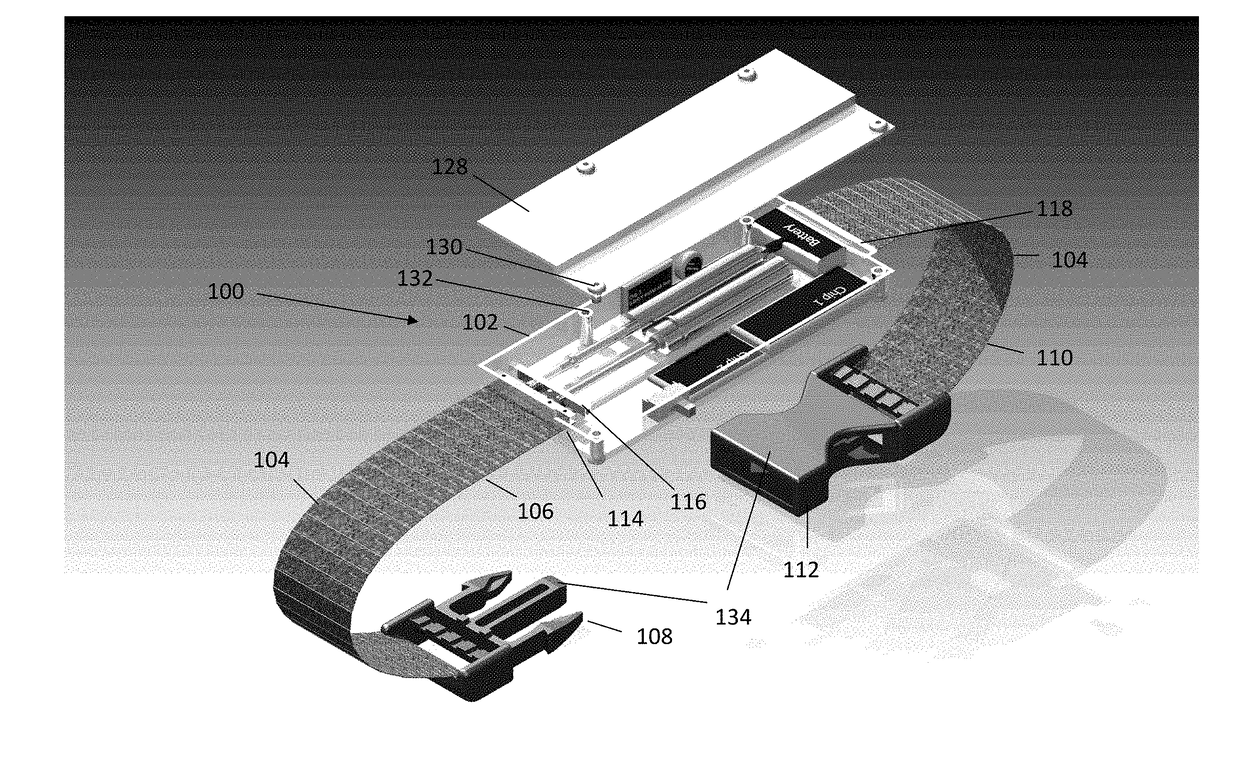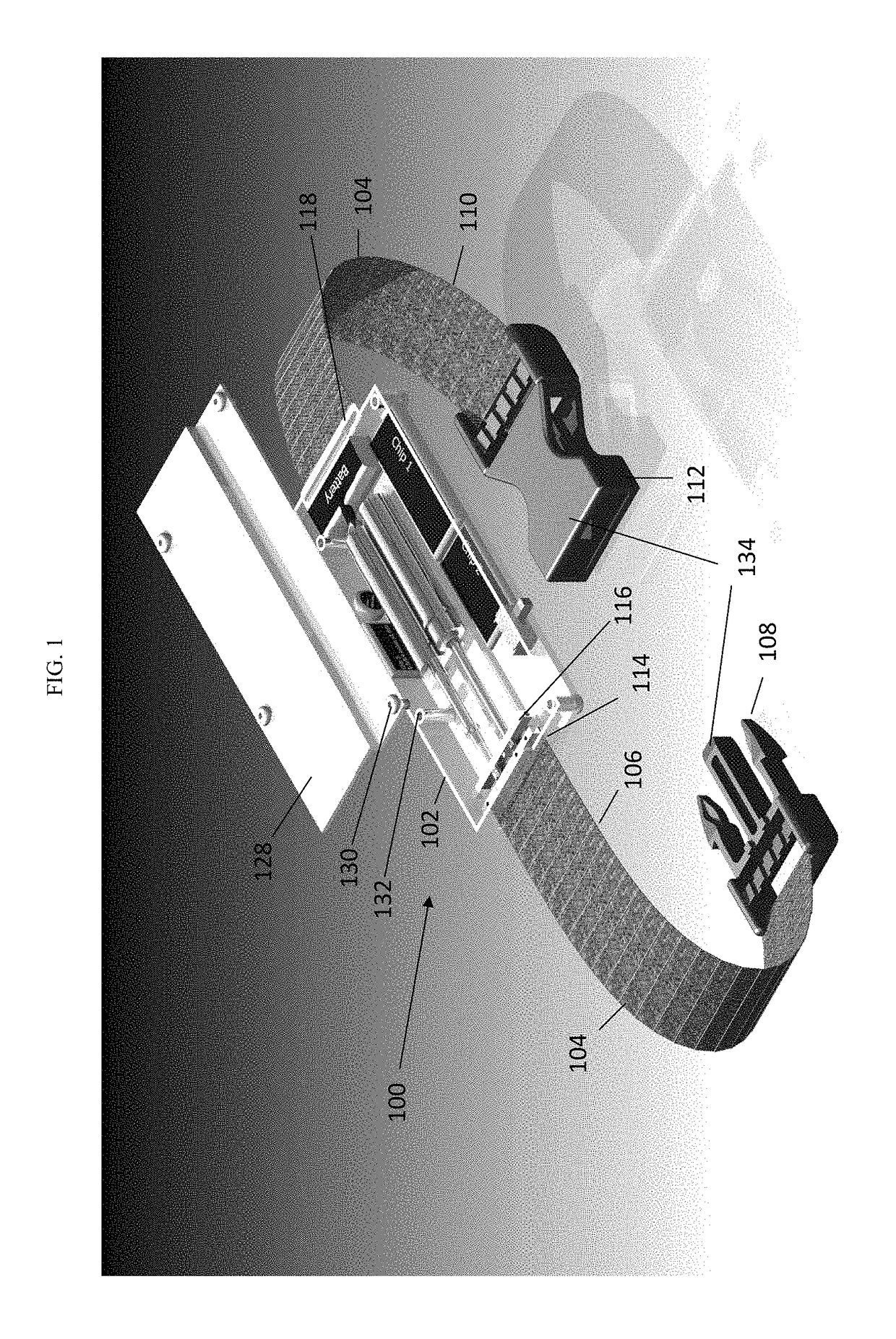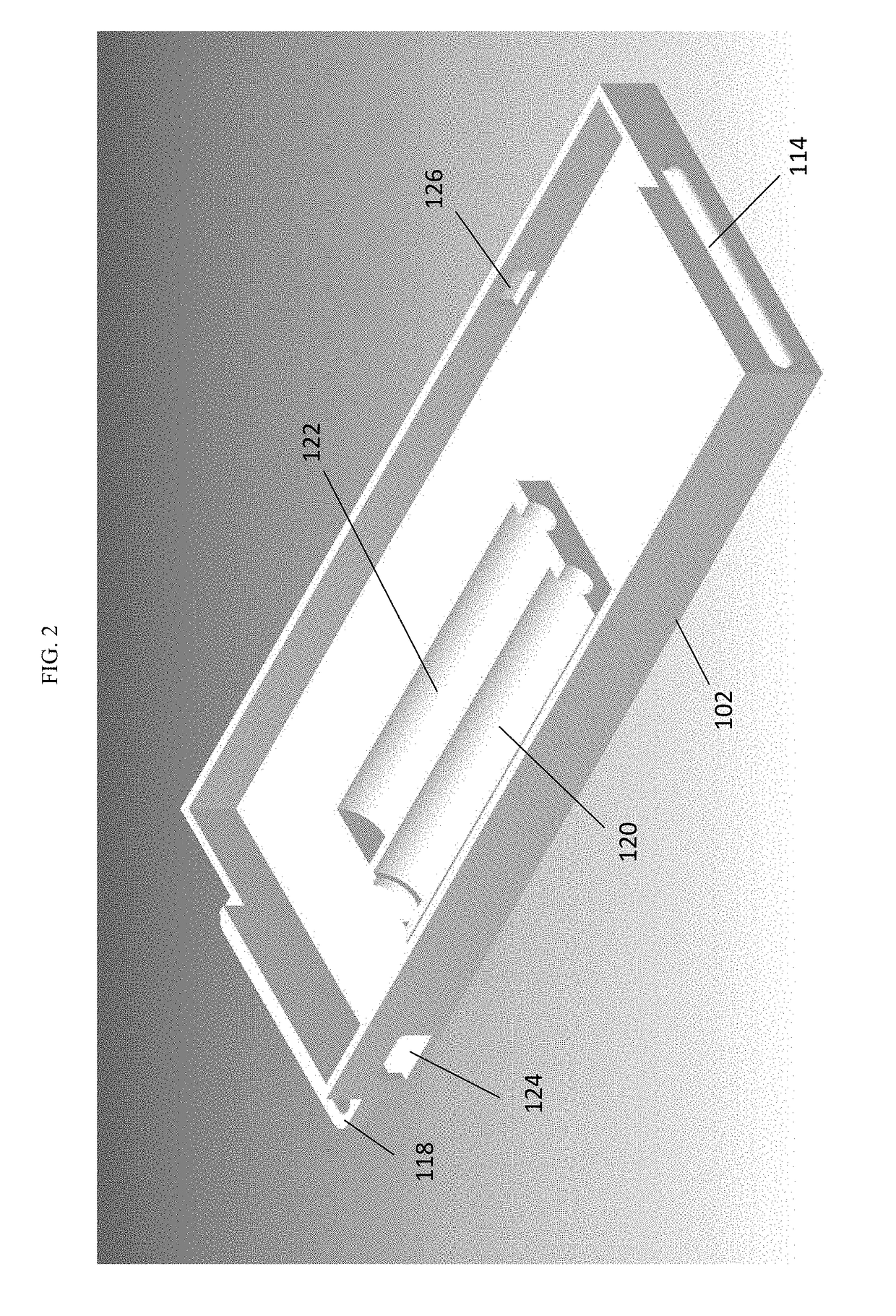System and method to monitor, guide, and evaluate breathing, utilizing posture and diaphragm sensor signals
- Summary
- Abstract
- Description
- Claims
- Application Information
AI Technical Summary
Benefits of technology
Problems solved by technology
Method used
Image
Examples
third embodiment
[0321]In a third embodiment as shown in FIG. 30, a breath training device 260 is similar to breath training device 220 of the second embodiment, except that a front sensor housing 262 and a back sensor housing 264 are both the same as back sensor housing 224 described above in the second embodiment of breath training device 220, resulting in a front angle sensor 266 worn on the abdomen or chest, and a back angle sensor 268 worn on the back as shown in the block diagram in FIG. 31, with no displacement sensors utilized, and with sensor output signals wirelessly and separately transmitted by the I / O in front sensor housing 262, and the I / O in back sensor housing 264 to external computing platform 162. In this embodiment, the positions of both front and back sensor housing 262 and 264 can be slidably (e.g. so as to be movable by sliding) adjusted on the respiration belt after wearing and tightening the belt as previously described in the second embodiment. Front angle sensor 266 and ba...
fourth embodiment
[0322]In a fourth embodiment of a breath training device 280 as shown in FIG. 32, a back sensor housing 282 is shown which is again similar to back sensor housing 224 and its components as described above in the second embodiment, except that a wire 283 connects the microcontroller of back sensor housing 282 to a front sensor 284, located in front sensor housing 286. In this embodiment, front sensor housing 286 need only contain front sensor 284, connected to wire 283 for sending front sensor output signals to the microcontroller in back sensor housing 282. This arrangement avoids needing two sets of processors, batteries, and I / O, but with the disadvantage that wire 283 is required. As shown, the front sensor housing 286 can be smaller since it requires fewer components. Front sensor 284 can be based on an angle sensor, displacement sensor, or other sensing means as previously discussed. Both front and back sensor housing 286 and 282 have loops 288, 290, and 292, 294 on their ends ...
fifth embodiment
[0323]A fifth embodiment of a breath training device 300 is shown in FIGS. 33-39, wherein a displacement sensor 302 can be situated between two elastic straps 304 and 306 as shown in FIG. 34, with a respiration belt 308 stitched in between on both belt ends 310 and 312, such that elastic straps 304 and 306 can be moved apart as shown in FIG. 34, and can stretch along their lengths during inhalation when a user's trunk circumference increases, placing tension on belt ends 310 and 312. As shown in FIGS. 34-35, snap fasteners 314 and 316 can be placed perpendicularly through both elastic straps 304 and 306, both equidistant from the ends of said elastic straps. As shown in FIG. 34, displacement sensor 302 can be attached to snap fasteners 314 and 316 in the area between elastic straps 304 and 306, and run therebetween, such that when elastic straps 304 and 306 expand during inhalation, snap fasteners 314 and 316 move apart, causing displacement sensor 302 to elongate, and to contract d...
PUM
 Login to View More
Login to View More Abstract
Description
Claims
Application Information
 Login to View More
Login to View More - R&D
- Intellectual Property
- Life Sciences
- Materials
- Tech Scout
- Unparalleled Data Quality
- Higher Quality Content
- 60% Fewer Hallucinations
Browse by: Latest US Patents, China's latest patents, Technical Efficacy Thesaurus, Application Domain, Technology Topic, Popular Technical Reports.
© 2025 PatSnap. All rights reserved.Legal|Privacy policy|Modern Slavery Act Transparency Statement|Sitemap|About US| Contact US: help@patsnap.com



